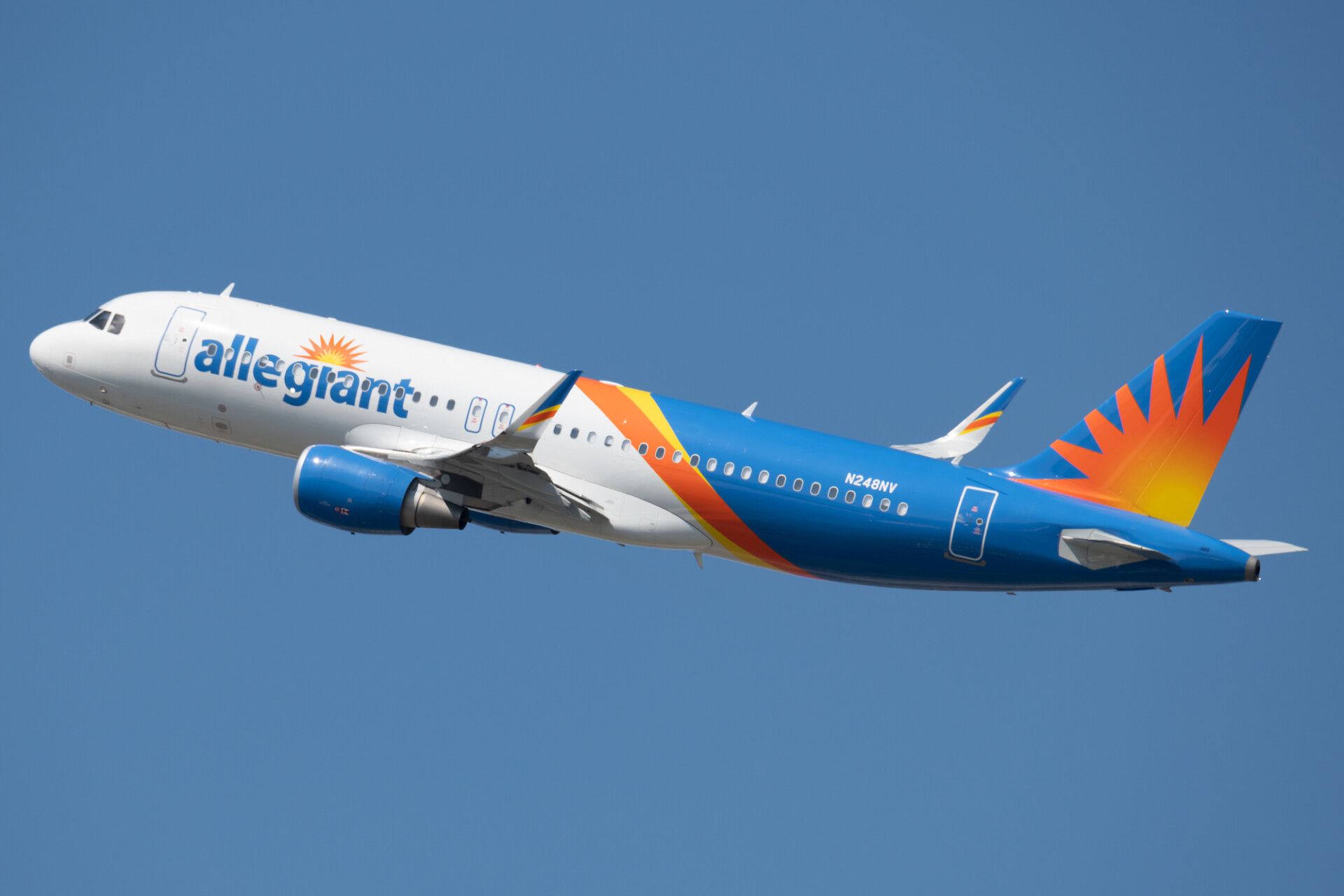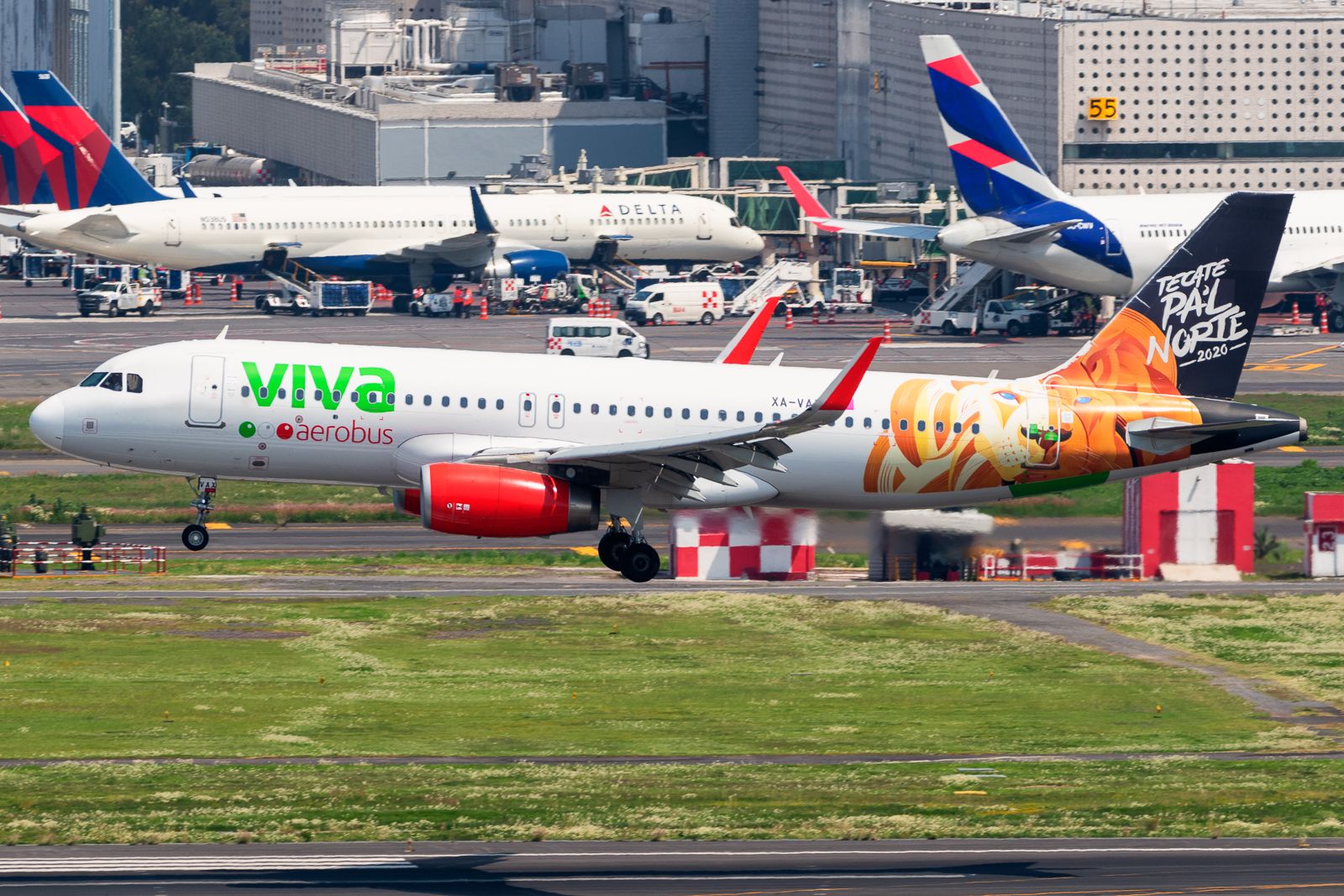There’s a new alliance between ultra-low-cost carriers in North America. Allegiant and Viva Aerobus have submitted a joint application to the US Department of Transportation (DOT) requesting approval of and antitrust immunity to launch a new fully-integrated Commercial Alliance Agreement.
Allegiant-Viva Aerobus Joint Venture
While both carriers are not using the Joint Venture word in the statement announcing their alliance, it sure looks like one. The fully-integrated Commercial Alliance Agreement is designed to “dramatically expand options for nonstop leisure air travel between the United States and Mexico.”
Both carriers will coordinate across all areas of airline operations, including codesharing, scheduling, marketing, information systems, and loyalty programs. They will provide seamless access and benefits for customers of both airlines.
Additionally, Allegiant will make an investment of US$50 million in Viva Aerobus. Allegiant Chairman and CEO, Maurice J. Gallagher is expected to join Viva Aerobus’ Board of Directors.
All of these transactions are subject to clearance by Mexican and US competition authorities. Barring something unexpected, they should tick all the boxes in the shortest period possible. The airlines expect to receive DOT and Mexico’s authorization by July 2022. Allegiant and Viva Aerobus hope to offer flights under the alliance beginning in the first quarter of 2023.
That’s an ambitious timeline, considering Mexico is still under Category 2 with the Federal Aviation Administration (FAA). Mexican carriers cannot launch new routes, add new frequencies and fully operate codeshare agreements, while Mexico remains downgraded. Nonetheless, the approval process for the alliance can run parallelly to the Category 1 recertification, said Viva Aerobus to Simple Flying.
Currently, there are two alliances between Mexico and US carriers. Volaris and Frontier Airlines have a codeshare agreement, while Aeromexico and Delta Air Lines have a Joint Venture Agreement and Delta is still the owner of 49% of Aeromexico’s shares.
How would the Allegiant-Viva Aerobus alliance look like?
Allegiant does not operate in Mexico at the moment. Nonetheless, “combining the unique product offerings, networks and market experience of two of the world’s fastest-growing ULCCs, the alliance will achieve important public benefits that neither Allegiant nor Viva Aerobus could provide independently,” said the carriers in a statement.
For Allegiant, the alliance will broaden its travel offerings and include destinations such as Cancun and Los Cabos. Viva Aerobus will have access to Allegiant’s network and point-of-sale process. It would allow the Mexican low-cost carrier to grow its US customer base.
Juan Carlos Zuazua, Viva Aerobus CEO, said,
“This unique ULCC alliance will create new non-stop connectivity and more competition, strengthening the immense Hispanic VFR market and offering amazing holiday getaways for residents of both nations.”
Stay informed: Sign up for our daily and weekly aviation news digests.
The powerful recovery of the Mexico-US market
None other country pair have recovered as fast as Mexico and the US. Up to October, the airlines of both nations had recovered around 92% of their pre-pandemic traffic levels. For US carriers alone, the recovery has risen to 98%.
This transborder market has outperformed the rest of the world during the pandemic due to a strong leisure and VFR recovery. These two segments are Viva Aerobus’ and Allegiant’s niche.
The alliance will add new transborder routes and nonstop competition. There are more than 250 new potential route opportunities identified in the DOT application. Nonetheless, Allegiant and Viva Aerobus will announce at a later date the specific routes targeted for service.
What do you think of this new potential alliance? Let us know in the comments below.



